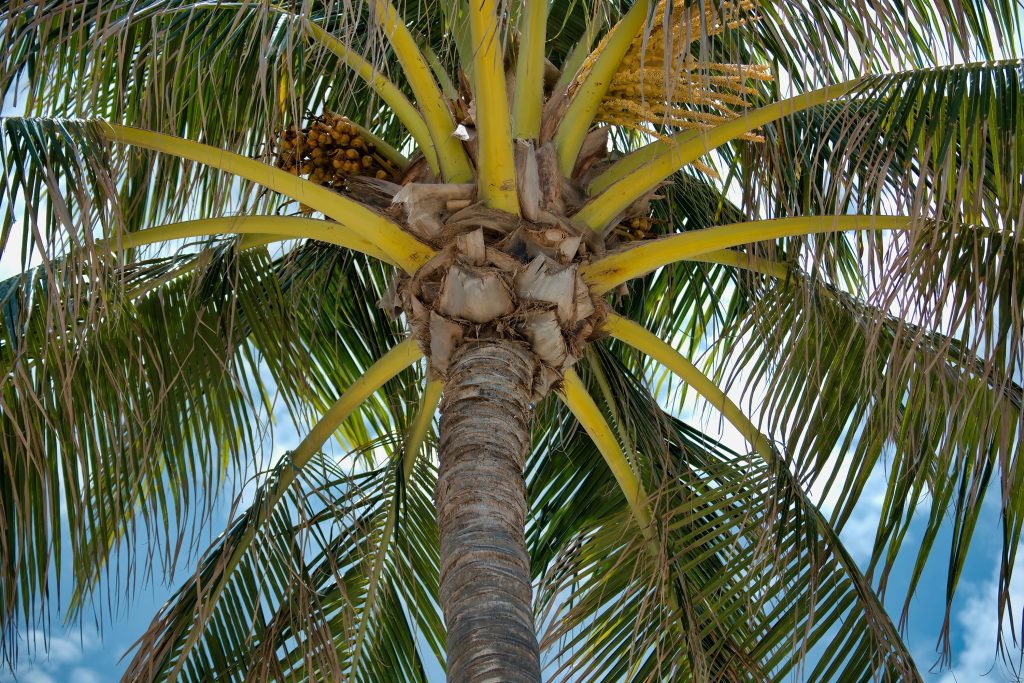
January 16, 2025 By Charlie Inglis
What is it? Palm oil. It’s in everything from pizza dough to detergent. It’s in my house and it’s almost certainly in yours. Palm oil is a major problem for our environment, yet the demand for it is increasing rapidly. Company after company is taking advantage of palm oil’s versatility, effectiveness, and affordability, however at a tremendous cost to the global climate. Read on to learn more about this common yet problematic ingredient.
Palm oil is a substance that is used in up to 50% of packaged household products across the United States. It is made from oil palm trees, and 90% of these trees are grown in Indonesia and Malaysia. Palm oil mills convert oil palm trees into palm oil. Palm oil is very appealing to companies, because it offers a greater yield than most vegetable oils, a generally better health profile, and at a lower cost. However, there is a bigger picture that companies should observe before committing to using palm oil.
Palm oil has many harmful effects on the environment, including deforestation of critical tropical forest “carbon sinks.” This deforestation causes massive amounts of habitat loss, and decrease in resources for wildlife. The common practice of burning areas to clear them for palm tree growth results in air pollution and greenhouse gas production, which directly contributes to global warming. However, there is hope to halt these harmful effects.
Everyday actions can help to reduce the quantity of palm oil being produced. Obviously, supply-and-demand affects the yield of this product. If less palm oil is purchased, then corporations will use and make less of it. All it takes is a quick check of the ingredients listed on things we buy. If we’re all a little more mindful about purchasing alternatives, we can make a difference. You can also talk to friends and family about being conscious of not buying palm oil-containing products.
Palm oil is a product that is incredibly widespread throughout the world. Let’s take action here in Hingham to be part of the call for the end of palm oil. Follow these tips, and together we can each do our part!
Quick tips for minimizing palm oil use:
- Check labels on items you buy and use.
- Know the sneaky pseudonyms companies use for palm oil, including palm kernel oil, palmitate, sodium lauryl sulfate, and stearic acid.
- Spread the word! Tell friends and family.
- Write to companies and legislators, and post on social media!

Hinghamite Charlie Inglis may only be in 6th grade, but he makes as much of an impact on the town as people who have lived here for generations. Charlie is a Green Living contributor for Hingham Anchor. When Charlie isn’t sharing his conservation and recycling tips, you might find him at Stars, Wompatuck or enjoying one of the countless athletic and arts activities he participates in.
References:
https://www.worldwildlife.org/industries/palm-oil
https://www.worldwildlife.org/pages/which-everyday-products-contain-palm-oil
https://www.theguardian.com/news/2019/feb/19/palm-oil-ingredient-biscuits-shampoo-environmental




It’s great to see that Charlie cares so much about this issue. Conventionally grown palm oil has been catastrophic for rainforests and animals like the orangutan. But did you know, orangutan conservation organisations do not call for people to avoid palm oil. Instead they ask them to use their voices, and their wallets, to demand only SUSTAINABLE, deforestation-free palm oil? There’s some great tools out there to help people find out which brands are using sustainable palm oil, such as the WAZA Palm Oil Scan app. Chester Zoo in the UK has lots of great information and lesson plans on the subject of palm oil for classrooms. And while you are checking these out, have a search for the game called Pokok, made by a young person for young people, to learn more about this issue.
Thanks for caring!
Michelle Desilets, Executive Director, Orangutan Land Trust